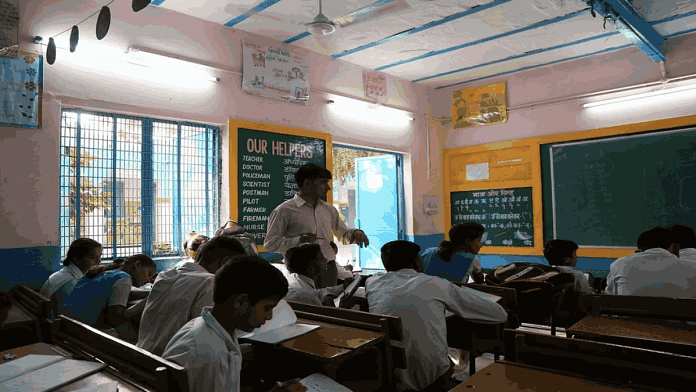New Delhi: The Delhi High Court held, in an important ruling last week, that students from Economically Weaker Sections (EWS) cannot be denied school admissions, even beyond the government-stipulated deadline of 31 December. The court observed that schools cannot refuse to admit candidates who were shortlisted for admission on the basis of a computerised draw of lots.
At the heart of the legal battle was pre-primary student Arpit, who had been refused admission by Pitampura’s Adriel High School, despite receiving a favourable outcome in the draw of lots conducted by the Delhi Government’s Directorate of Education (DoE). The school had contended that such an order based on the draw of lots cannot be issued after 31 December, the specified deadline for admission to schools.
The student had then approached the Delhi High Court against the school’s decision. The court had previously granted him provisional admission to the school, which has now been made permanent. Justice C. Hari Shankar observed that the school must admit Arpit and also allow him all amenities, such as books and uniform, because the 31 December deadline could not be said to be hard and binding in law, according to previous court decisions.
“…[I]t can no longer be said that the fixing of cutoff date 31 December as a date beyond which no order of provisional admission can be passed, is a principle which should be regarded as judicially binding…,” the court said.
Under the Right to Education Act, 2009, private schools are required to reserve 25 percent of their seats for disadvantaged groups and weaker sections. In cases where reserved seats are left unfilled by schools, a draw of lots is conducted by the DoE to determine admissions to such seats. Justice Shankar said that schools are then supposed to admit these students determined by the draw.
“The children who are shortlisted for admission to various schools on the basis of the computerised draw of lots would be entitled as a right to such admission, and the schools cannot refuse to admit them,” ruled the court.
The judgment was based on a previous two-judge decision of the court in the case of Baby Nikshita, which had established that such admission was actually permitted by law. In this case, the court specifically referred to a paragraph that had allowed admission after the 31 December cut-off date, rejecting the school’s stance that the paragraph was just an incidental observation.
“Para 9 of the said order is of stellar significance, though Ms. Surbhi sought to submit that it was merely an incidental observation… The DoE has been directed, thereafter, to conduct a draw of lots and allocate schools to the successful students,” the court noted. “This order was passed on 18 February 2022, much after 31 December,” it added.
Justice Shankar said that unless a “hierarchically superior court” decides the issue differently, the date of 31 December could not be said to be binding.
In support of its argument, the school had referred to another decision of the Delhi High Court itself, which had said that such admissions cannot be granted after the cut-off date. It said that an appeal against the order had been dismissed by a larger bench, solidifying its stance that such admissions were impermissible.
However, Justice Shankar rejected the school’s contention on the ground that the petition was dismissed in the above case for a completely different reason and did not mean that the bench had agreed with its outer limit.
The court also said a single judge must follow the decision of a larger bench, which had disregarded the limit for admissions, as in the Baby Nikshita case. A single judge cannot decide contrary to a bench of larger strength to ensure consistency in the judiciary. “That is obviously impermissible,” remarked the court.
Akshat Jain is a student of the National Law University, Delhi, and an intern with ThePrint.
(Edited by Mannat Chugh)
Also Read: ‘Pregnant person’ — not just women, trans men & others can also be with child, says Supreme Court




Have seen who all are able to manage seats in the name of EWS, this is a fraud gifted to our country by CONgress.